Udayana University's Faculty of Tourism Conducts Community Service in Ngadirejo Village: Strengthening the Competitiveness and Inclusivity of Bromo Jeep Tourism Operators
NGADIREJO, PROBOLINGGO – The Faculty of Tourism at Udayana University (FPAR Unud) conducted a Community Service and Field Research activity in Ngadirejo Village, Sukapura District, Probolinggo Regency, East Java, on Friday (November 21, 2025). The event, themed “Local Community Empowerment for Competitive and Inclusive Jeep Tourism Operators in the Bromo Tengger Semeru National Park Area,” is a strategic effort to strengthen the capacity, professionalism, and governance of the Jeep tourism business in the Bromo area.
The activity was attended by the Dean of FPAR Unud, Dr. I Wayan Suardana, S.ST.Par., M.Par.; the Vice Dean for General Affairs and Finance, Yayu Indrawati, S.S., M.Par., Ph.D.; representatives of lecturers and staff from FPAR Unud; the Head of Ngadirejo Village, Anang Budiyono; village officials; Jeep tourism operators; and representatives from the Family Welfare Empowerment (PKK).
Bromo Buffer Village and Challenges in Strengthening Tourism Governance
As a buffer village for the Mount Bromo tourist area, Ngadirejo Village has great potential for community-based natural tourism development. However, the Jeep tourism sector in the village still faces several strategic challenges, such as the lack of a standard service protocol, weak community institutionalization, and the need to improve service quality to be safe, professional, and sustainable.
In his remarks, the Dean of FPAR Unud affirmed that this service activity is an implementation of the Tri Dharma (Three Pillars) of higher education. He also highlighted the historical and cultural proximity between Bali and the Tengger community, particularly in the process of transformation from the agrarian sector to tourism. The Head of Ngadirejo Village also expressed his appreciation and hoped the activity could help enhance the capacity of Jeep tourism operators, horse guides, and street vendors to adapt to the increasingly competitive dynamics of Bromo tourism.
Material 1 – Professionalizing Jeep Tourism and Safe & Inclusive Service Standards
The material session was moderated by a lecturer from the Tourism Undergraduate Study Program, I Gusti Agung Pradnyadari, S.Pd., M.Sc., and featured the resource person Dr. I Made Bayu Ariwangsa, S.S., M.Par., M.Rech., an expert in adventure tourism.
In his presentation, Bayu Ariwangsa explained that Bromo Jeep tourism is not just an activity of transporting tourists to a sunrise spot, but a complex adventure service system, encompassing:
Fleet management,
Risk mitigation and driving safety,
Experience staging,
Waiting time efficiency, and
Overall destination reputation.
He emphasized the importance of consistent implementation of SOPs, a principle of zero tolerance for unsafe driving, and inclusive services that are friendly to children, the elderly, women, and people with disabilities.
Material 2 – Gastronomy and the Potential of Local Cuisine as a Tourist Attraction
The second material was delivered by I Nyoman Tri Sutaguna, S.ST.Par., M.Par., who discussed “Community Empowerment through Processing Local Potential as a Tourist Attraction.”
He highlighted that Ngadirejo Village's main agricultural commodity, such as potatoes, is still sold raw without value-added processing. The application of Good Manufacturing Practices (GMP), processing technology, packaging, labeling, and appropriate marketing strategies is believed to be capable of transforming local potential into excellent culinary products that support tourism development and strengthen the community's economy.
Community Dialogue: Aspirations, Challenges, and Joint Evaluation
During the discussion session, one resident, Simon, mentioned that Bromo tourism has so far tended to be a transit activity, meaning tourists do not stay long in the village. He asked for strategies to increase the length of stay for tourists and how to introduce the village's signature cake, Rambutan, which is still relatively unknown.
The Village Head, who is also a Jeep tourism operator, explained that the community operates 18 Jeep fleets and 30 motorcycle taxis. Although some of the fleet was manufactured in the 1980s, residents maintain safety through independent vehicle checks before operation, in addition to routine run checks by the Department of Transportation every six months. He stressed the need to evaluate the tour operational time, which starts at 3:00 AM, and the importance of strengthening the Jeep community's institutionalization and its integration with local culinary development.
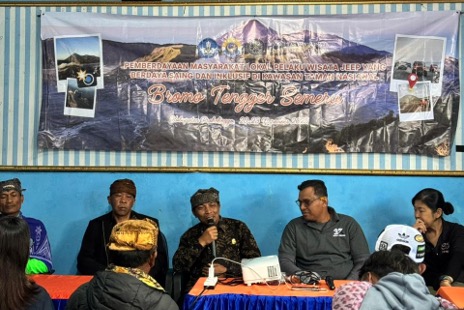
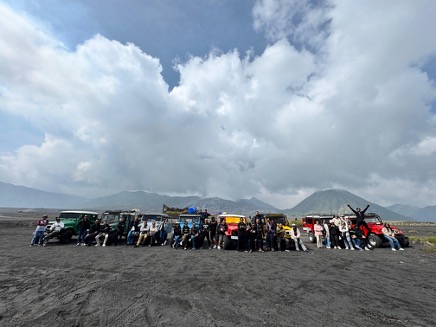
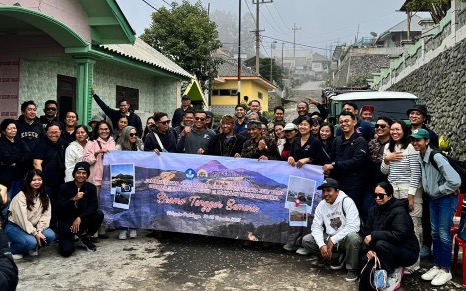
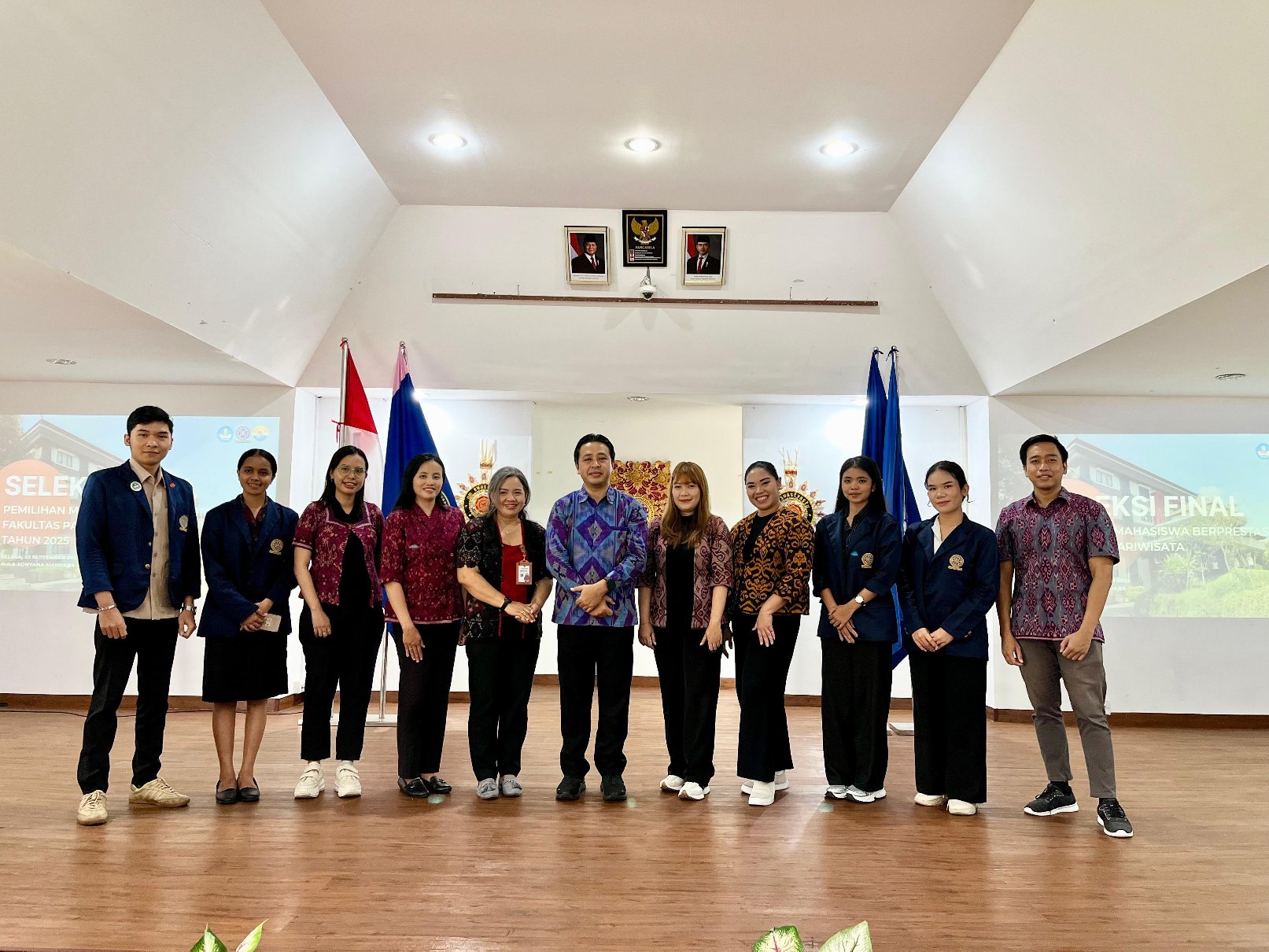
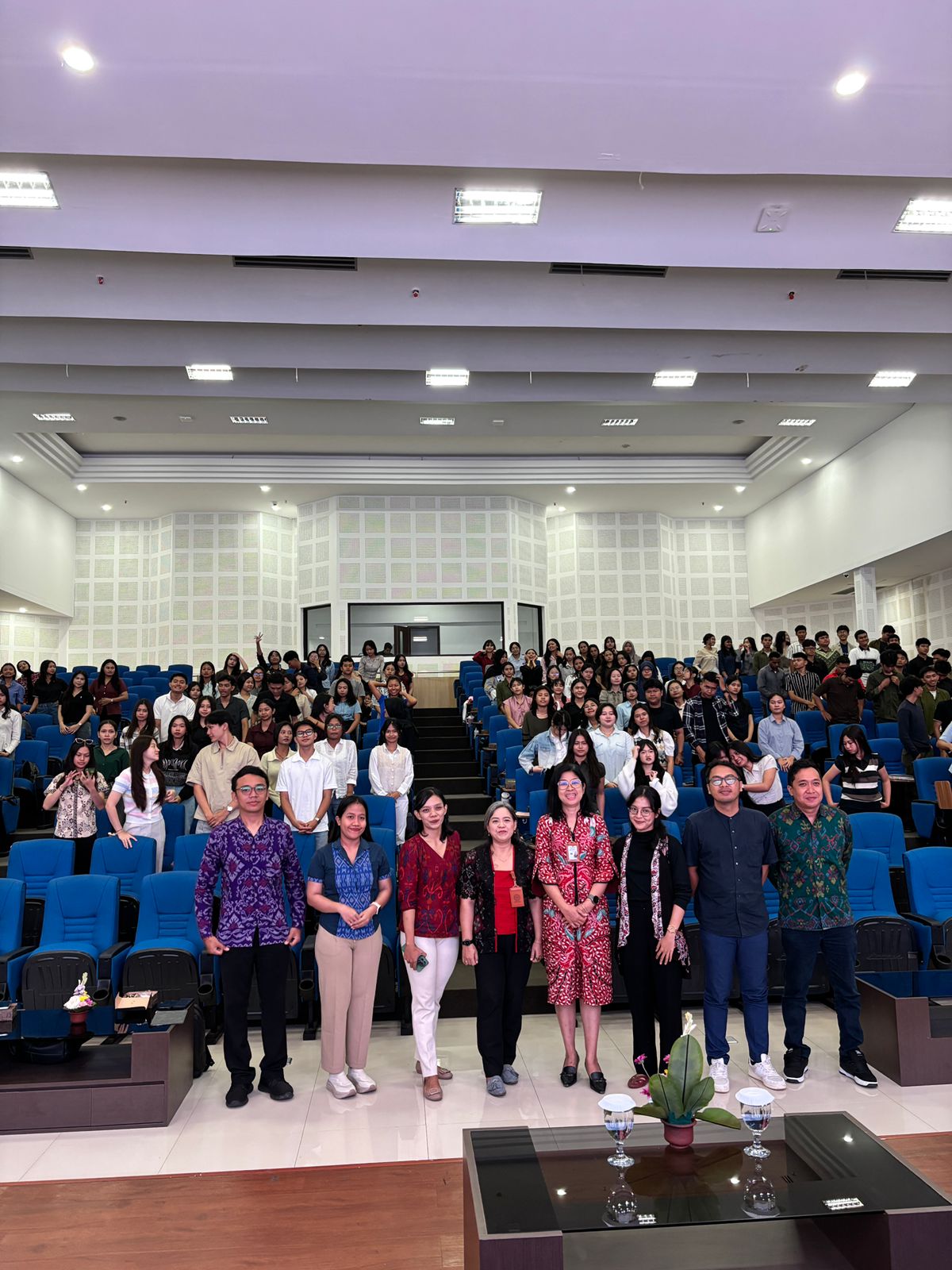
UDAYANA UNIVERSITY